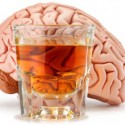It's easy to fall off the wagon during the holidays
Holiday time is party time, and no holiday is more associated with the drinking of alcohol than New Year’s Eve.
For some people, it is especially difficult to cope with party invitations at this time of year. Those who are newly sober, and trying desperately to resist the temptation to relapse, often wonder how to cope with this issue, as do their families and friends who wonder how to help them.
A few simple suggestions might help both to feel more at ease, and be more able to deal with the holiday season in a healthful and successful way.
Those newly in recovery often feel pressure to attend family events, but experts say not to feel obligated to attend functions where alcohol is served if it is too soon after achieving sobriety, as the danger of relapse is often greatest at that time. If, as a newly sober person, you want to attend, there are some coping strategies you can implement, such as limiting the time you spend at the event, bringing a non-alcoholic beverage to share, such as sparkling grape juice or a fancy sparkling water, or even placing a slice of lime in your glass of cola or ginger ale so that others mistake it for an alcoholic drink and thus don’t pressure you to drink.
Wegman’s or Kedem’s grape juices are packaged like wine, so they make a nice gift to bring to a gathering, and have the added benefit of providing something festive that the teetotalers in the crowd can enjoy. Specialty bottled waters, such as Berg or Bling, are ridiculously expensive and probably no better than tap water, but for the right party they have a certain status, and can be a similarly appreciated gift.
Bringing a supportive friend to holiday events can also help, and when family and friends can be also be expected to be supportive, simply telling them that you are no longer drinking can be helpful too.
If, as a newly sober person, you feel that you will encounter saboteurs, or feel that you may not be able to cope with the presence of alcohol, it’s probably best to refuse the invitation, at least this year, and perhaps attend an Alkathon (AA meeting specially intended to provide support during the holiday party hours) instead.
Even at a party where you do feel comfortable, it’s best not to set your glass down, lest you accidentally mix it up with another person’s drink that turns out to have alcohol in it, or lest someone mistakenly “refreshes” it for you with something that you don’t want to consume.
Hosts can play a supportive role in not contributing to their guests feeling uncomfortable. They can ask “What would you like?” rather than pressuring someone to “Have a drink.” They can make certain that there are alternatives to alcohol, and that they are on separate tables to avoid confusion. They can label alcoholic and non-alcoholic punches and foods, and be aware that even items that are cooked with alcohol can present a problem for a person who has a drinking problem, as it is a fallacy that all the alcohol disappears in the cooking process.
With the liability issue that hosts now face if their guests leave the party and get into an alcohol related crash or other incident, perhaps it’s time to consider throwing a party that does not include alcohol. If the non-alcoholic libations and the foods are delicious enough, and the company is entertaining, welcoming and friendly, the absence of alcoholic beverages will not be that much of an issue.
And, hopefully, no one will wake up with a headache the next morning, or worse, find themselves back in the grip of a devastating addiction.
source: Gloucester Times


